0
Policy Brief
Community:
Mar 1, 2023
Unfortunately, there are more youth experiencing homelessness than there are resources available. Up to 40% of youth experiencing homelessness identify as lesbian, gay, bisexual, transgender, and queer/questioning (LGBTQ+). Homelessness is often the result of multiple factors including historical and present systemic racism, discrimination, and socio-economic inequities. Learn more in our new policy brief.
Authored by: National Network for Youth
Topics: Criminal justice, Homelessness, Housing, Legislation & Policy, Mental health, Racial inequalities, Safety, Stability, Youth
 Shared by Sandra Ware
Shared by Sandra Ware
Sandra Ware posted a
on Jun 8, 2023
National Network for Youth
Unfortunately, there are more youth experiencing homelessness than there are resources available. Up to 40% of youth experiencing homelessness identify as lesbian, gay, bisexual, transgender, and queer/questioning (LGBTQ+).
0
Policy Brief
Community:
Mar 28, 2023
Family separations and family detention have been used as part of immigration enforcement in the United States. These practices and policies are severely detrimental to child health and wellbeing and can cause lasting harm.
This brief reviews the state of the research on the developmental, psychological, and physical toll of family separation and family detention on children and their caregivers. Grounded in this science, we provide a set of policy recommendations that protect child health and wellbeing.
Authored by: Kelly Edyburn, PhD & Shantel Meek, PhD for the Children's Equity Project
Topics: Child welfare, Early childhood, Health, Immigrants, Legislation & Policy, Mental health, Youth
 Shared by Sandra Ware
Shared by Sandra Ware
Sandra Ware posted a
on Mar 30, 2023
Kelly Edyburn, PhD & Shantel Meek, PhD for the Children's Equity Project
Family separations and family detention have been used as part of immigration enforcement in the United States.
0
Interactive
Community:
Jun 29, 2022
In 2020 we launched a dedicated effort to learn more about legal issues surrounding unaccompanied minors experiencing homelessness. This project was intended to guide both organizations’ ongoing work and advocacy and develop resources to help the field better prevent and end homelessness among minors.
This toolkit includes:
• Key issues and challenges for minors experiencing homelessness;
• Strategies and lessons learned from advocacy for state minor consent to services laws (including questions to consider);
• Legal issues and considerations relevant to host homes for minors;
• Working towards equity while serving minors;
• Child welfare and youth homelessness; and
• Additional legal and policy issues.
Authored by: National Network for Youth
Topics: Advocacy, Child welfare, Community development, Education, Foster care, Homelessness, Housing, Legislation & Policy, Racial inequalities, Research, Supportive housing, Sustainability, Youth
 Shared by Karina George
Shared by Karina George
Karina George posted a
on Jun 29, 2022
National Network for Youth
In 2020 we launched a dedicated effort to learn more about legal issues surrounding unaccompanied minors experiencing homelessness.
0
Policy Brief
Community:
Dec 4, 2019

In California, more than 3.7 million students were eligible for free or reduced priced school meals in the 2017-2018 school year. For many of those students, school meals are the primary source of regular access to healthy food. When the bell rings at 3:00 or lets out for summer break, many of those students go home to nutritional uncertainty or high-calorie, low-nutrient foods.
For many low-income families, the out-of-school-time food access gap increases family stress: limited budgets are stretched further to cover food, rent, utilities, transportation, medications, and chidcare costs. For very young children, food insecurity can negatively impact brain and physical development. For children of all ages, disrupted access to healthy food can impact behavior, increase risk of obesity, make it harder to concentrate, or exacerbate existing healthy conditions like type 2 diabetes. The impact is not limited to summer, and can lead to a rocky start to the school year, negatively impacting school attendance and students’ ability to effectively participate in school.
Read the full brief to learn how public and affordable housing communities can address food insecurity for children and youth with the help of out-of-school-time USDA child nutrition programs.
Authored by:
Topics: Advocacy, Early childhood, Food insecurity, Health, Healthy homes, Housing, Legislation & Policy, Low-income, Nutrition, Out-of-school time, West Coast, Youth
 Shared by Linda Lu
Shared by Linda Lu
Linda Lu posted a
on Dec 4, 2019
In California, more than 3.7 million students were eligible for free or reduced priced school meals in the 2017-2018 school year. For many of those students, school meals are the primary source of regular access to healthy food.
0
Policy Brief
Community:
Jun 4, 2019
The Department of Housing and Urban Development (HUD) has announced its intention to roll back protections for transgender people experiencing homelessness. The newly proposed rule, which is in the early stages of the rulemaking process and has not yet been publicly posted to the Federal Register, would allow homeless shelters to discriminate based on gender identity, putting transgender people in danger of violence and further housing instability. This is part of a long string of attacks the Trump administration has directed toward the transgender community, such as implementing the infamous military ban, contributing to a pattern that legally perpetuates discrimination against transgender people in this country.
Authored by: Aastha Uprety for Equal Rights Center
Topics: Health, Homelessness, Housing, Legislation & Policy, Racial inequalities
 Shared by Housing Is
Shared by Housing Is
Housing Is posted a
on Jun 13, 2019
Aastha Uprety for Equal Rights Center
The Department of Housing and Urban Development (HUD) has announced its intention to roll back protections for transgender people experiencing homelessness.
0
Policy Brief
Community:
May 10, 2019
Policies such as those outlined in the draft proposed rule are having, and will continue to have a significant detrimental impact on survivors of domestic violence and sexual assault by deterring immigrant families, including those with U.S. citizen and Lawful Permanent Resident children, from accessing critical help when they need it. Housing assistance is a vital resource for survivors, giving them the security they need to leave abuse without having to fear that doing so will result in homelessness, as well as providing a safe environment to begin their recovery.
Authored by: Grace Huang for the Asian Pacific Institute on Gender-Based Violence
Topics: Domestic violence, Homelessness, Housing, Immigrants, Legislation & Policy
 Shared by Housing Is
Shared by Housing Is
Housing Is posted a
on Jun 7, 2019
Grace Huang for the Asian Pacific Institute on Gender-Based Violence
Policies such as those outlined in the draft proposed rule are having, and will continue to have a significant detrimental impact on survivors of domestic violence and sexual assault by deterring immigrant families, including those with U.S.
0
Policy Brief
Community:
On May 10, 2019, the Department of Housing and Urban Development (HUD) proposed a rule that would significantly change the agency’s eligibility requirements for federal housing assistance based on immigration status.
Authored by: National Housing Law Project and National Low Income Housing Coalition
Topics: Housing, Immigrants, Legislation & Policy
 Shared by Housing Is
Shared by Housing Is
Housing Is posted a
on Jun 7, 2019
National Housing Law Project and National Low Income Housing Coalition
On May 10, 2019, the Department of Housing and Urban Development (HUD) proposed a rule that would significantly change the agency’s eligibility requirements for federal housing assistance based on immigration status.
0
Policy Brief
Community:
May 9, 2019
On May 9, the House Appropriations Committee passed its FY2020 appropriations bill for Labor, Health and Human Services, and Education. The House bill includes $100 million in FY2020 funding for the McKinney-Vento Act’s Education for Homeless Children and Youth (EHCY) program. This represents a 7% increase over the FY2019 level; if enacted, it would represent a 30% increase in EHCY funding since FY2017.
Authored by: SchoolHouse Connection
Topics: Child welfare, Funding, Homelessness, Housing, Legislation & Policy
 Shared by Housing Is
Shared by Housing Is
Housing Is posted a
on May 15, 2019
On May 9, the House Appropriations Committee passed its FY2020 appropriations bill for Labor, Health and Human Services, and Education. The House bill includes $100 million in FY2020 funding for the McKinney-Vento Act’s Education for Homeless Children and Youth (EHCY) program.
0
Policy Brief
Community:
May 2, 2019
Spring is in full bloom in Washington, D.C., and so are key pieces of legislation that FRAC is monitoring and weighing in on. Below is an overview of legislative proposals in the 116th Congress to look out for that would impact critical anti-hunger and anti-poverty programs.
Authored by: Lauren Badger for Food Research & Action Center
Topics: Asset building, Food insecurity, Legislation & Policy, Nutrition, Seniors
 Shared by Housing Is
Shared by Housing Is
Housing Is posted a
on May 6, 2019
Lauren Badger for Food Research & Action Center
Spring is in full bloom in Washington, D.C., and so are key pieces of legislation that FRAC is monitoring and weighing in on. Below is an overview of legislative proposals in the 116th Congress to look out for that would impact critical anti-hunger and anti-poverty programs.
0
Policy Brief
Community:
May 1, 2019
Stable housing plays a vital role in people’s recovery from substance use disorders (SUDs). An inability to pay rent and the threat of losing housing can lead to stress that triggers substance misuse and relapse. People experiencing homelessness who also have SUDs typically find it difficult to address their substance use without a safe place to live, because they often use alcohol or drugs to cope with the dangers of life on the streets. In 2018, Congress passed the SUPPORT for Patients and Communities Act (known as the SUPPORT Act), which provided a variety of new programs and funding opportunities to help states and localities address the opioid epidemic and broadly help people with substance use disorders.
Authored by: Center on Budget and Policy Priorities
Topics: Homelessness, Housing, Legislation & Policy, Low-income, Mental health, Research, Substance abuse
 Shared by Housing Is
Shared by Housing Is
Housing Is posted a
on May 2, 2019
Center on Budget and Policy Priorities
Stable housing plays a vital role in people’s recovery from substance use disorders (SUDs). An inability to pay rent and the threat of losing housing can lead to stress that triggers substance misuse and relapse.
0
Interactive
Community:
NHC’s annual release of Paycheck to Paycheck provides insights into the ability of working households to afford typical housing in metropolitan areas across the country. The published report highlights the housing affordability challenges of workers within the construction industry across 259 metropolitan areas. See our methodology for more information on how we come up with our numbers (or use the same methodology to do your own analysis).
Authored by: National Housing Conference
Topics: Homelessness, Housing, Legislation & Policy, Low-income
 Shared by Housing Is
Shared by Housing Is
Housing Is posted a
on May 1, 2019
National Housing Conference
NHC’s annual release of Paycheck to Paycheck provides insights into the ability of working households to afford typical housing in metropolitan areas across the country.
0
Policy Brief
Community:
Congress has an important opportunity in 2019 to improve the health of millions of our nation’s children by passing a strong reauthorization that protects and strengthens the child nutrition programs. These successful, cost-effective federal nutrition programs play a critical role in helping children in low-income families achieve access to child care, educational, and enrichment activities while improving overall nutrition, health, development, and academic achievement.
Authored by: Feeding America and Food Research & Action Center
Topics: Child welfare, Early childhood, Food insecurity, Funding, Legislation & Policy, Low-income, Nutrition
 Shared by Housing Is
Shared by Housing Is
Housing Is posted a
on May 1, 2019
Feeding America and Food Research & Action Center
Congress has an important opportunity in 2019 to improve the health of millions of our nation’s children by passing a strong reauthorization that protects and strengthens the child nutrition programs.
0
Interactive
Community:
We're creating the foundations of change. Together, we can provide more families with access to a safe place to live.
Authored by: Freddie Mac, Duty to Serve
Topics: Community development, Housing, Legislation & Policy
 Shared by Housing Is
Shared by Housing Is
Housing Is posted a
on Apr 8, 2019
Freddie Mac, Duty to Serve
We're creating the foundations of change. Together, we can provide more families with access to a safe place to live.
0
Policy Brief
Community:
The Homeless Children and Youth Act of 2019 (H.R. 2001) is a bipartisan bill that removes barriers to U.S. Department of Housing and Urban Development (HUD) homelessness assistance for children, youth and families in the following ways.
Authored by:
Topics: Early childhood, Homelessness, Housing, Legislation & Policy, Youth
 Shared by Housing Is
Shared by Housing Is
Housing Is posted a
on Apr 4, 2019
The Homeless Children and Youth Act of 2019 (H.R. 2001) is a bipartisan bill that removes barriers to U.S. Department of Housing and Urban Development (HUD) homelessness assistance for children, youth and families in the following ways.
0
Policy Brief
Community:
Mar 1, 2019
A brief to help state and local agencies identify opportunities to align and leverage policies, programs, and funding across the three laws to support the education-to-workforce pipeline; a workbook to facilitate cross-agency conversations to identify and plan for alignment opportunities across ESSA, Perkins V, IDEA and WIOA; and an interactive tool that identifies specific language in the laws that address college and readiness topics and help state education agencies and local education agencies find new or greater alignment opportunities in their plans.
Authored by: College & Career Readiness & Success Center
Topics: Asset building, Education, Legislation & Policy, Post-secondary, Workforce development, Youth
 Shared by Mica O'Brien
Shared by Mica O'Brien
Mica O'Brien posted a
on Apr 2, 2019
College & Career Readiness & Success Center
A brief to help state and local agencies identify opportunities to align and leverage policies, programs, and funding across the three laws to support the education-to-workforce pipeline; a workbook to facilitate cross-agency conversations to identify and plan for alignment opportunities across ESSA
0
Policy Brief
Community:
Oct 1, 2016
Emerging health care financing models require much more sophisticated actuarial calculations than previous payment arrangements, often taking into account risk factors such as homelessness. Homelessness also has direct implications for clinical treatment decisions and integrated care models and should be noted in individual patient records. This policy brief provides a rationale for using the ICD-10-CM code for homelessness, outlines the challenges to maximizing this code, and offers strategies to consider to ensure health care providers ask about homelessness and record patients’ housing status. This data is highly relevant to clinicians and administrators at health centers, hospitals, state Medicaid systems, Medicaid managed care organizations, and public health departments.
Authored by: National Health Care for the Homeless Council
Topics: Health, Homelessness, Housing, Legislation & Policy, Low-income, Medicaid / Medicare
 Shared by Mica O'Brien
Shared by Mica O'Brien
Mica O'Brien posted a
on Mar 26, 2019
National Health Care for the Homeless Council
Emerging health care financing models require much more sophisticated actuarial calculations than previous payment arrangements, often taking into account risk factors such as homelessness.
0
Interactive
Community:
Includes: The Strength of SNAP and SNAP Action Needed, The Emergency Food Assistance Program (TEFAP), Commodity Supplemental Food Program (CSFP), and Child Nutrition Reauthorization.
Authored by: Food Research & Action Center (FRAC)
Topics: Food insecurity, Funding, Legislation & Policy, Low-income, Nutrition
 Shared by Mica O'Brien
Shared by Mica O'Brien
Mica O'Brien posted a
on Mar 1, 2019
Food Research & Action Center (FRAC)
Includes: The Strength of SNAP and SNAP Action Needed, The Emergency Food Assistance Program (TEFAP), Commodity Supplemental Food Program (CSFP), and Child Nutrition Reauthorization.
0
Interactive
Community:
Restoring the value of the minimum wage — and helping families cover basic needs — is essential to addressing hunger. The federal minimum wage of $7.25 an hour has not increased since 2009. A more adequate minimum wage would foster the nation’s economic strength and growth to be shared in more equitable ways. Low-income workers and their families would benefit the most from a higher minimum wage, leading to reduced poverty, hunger, and income inequality.
Authored by: Food Research & Action Center (FRAC), the Economic Policy Institute, and the National Employment Law Project
Topics: Asset building, Legislation & Policy, Low-income
 Shared by Mica O'Brien
Shared by Mica O'Brien
Mica O'Brien posted a
on Mar 1, 2019
Food Research & Action Center (FRAC), the Economic Policy Institute, and the National Employment Law Project
Restoring the value of the minimum wage — and helping families cover basic needs — is essential to addressing hunger. The federal minimum wage of $7.25 an hour has not increased since 2009.
0
Interactive
Community:
Federal tax credits, like the EITC and refundable CTC, provide critical supports for millions of working women, children, and families every year. They supplement low wages and can help soften the financial impact of fluctuating incomes or job losses. These credits are especially important for communities of color and women.
Authored by: Food Research & Action Center (FRAC)
Topics: Child welfare, Legislation & Policy, Low-income, Research
 Shared by Mica O'Brien
Shared by Mica O'Brien
Mica O'Brien posted a
on Mar 1, 2019
Food Research & Action Center (FRAC)
Federal tax credits, like the EITC and refundable CTC, provide critical supports for millions of working women, children, and families every year. They supplement low wages and can help soften the financial impact of fluctuating incomes or job losses.
0
Policy Brief
Community:
This annotated resource compilation is intended to help state and local agencies access information and resources needed to better understand the federal legal protections and requirements associated with datasets collected by federal agencies or as part of a federally funded program.
Authored by: The Network for Public Health Law
Topics: Data sharing, Disabilities, Early childhood, Education, Health, Homelessness, Legislation & Policy, Post-secondary
 Shared by Mica O'Brien
Shared by Mica O'Brien
Mica O'Brien posted a
on Feb 20, 2019
The Network for Public Health Law
This annotated resource compilation is intended to help state and local agencies access information and resources needed to better understand the federal legal protections and requirements associated with datasets collected by federal agencies or as part of a federally funded program.
0
Interactive
Community:
More tan 1.3 million homeless students K-12 have been identified in America's public schools.
Authored by: SchoolHouse Connection, Civic Enterprises, America's Promise Alliance, and Institute for Children, Poverty and Homelessness
Topics: Child welfare, Education, Homelessness, Housing, Legislation & Policy, Low-income, Youth
 Shared by Mica O'Brien
Shared by Mica O'Brien
Mica O'Brien posted a
on Feb 14, 2019
SchoolHouse Connection, Civic Enterprises, America's Promise Alliance, and Institute for Children, Poverty and Homelessness
More tan 1.3 million homeless students K-12 have been identified in America's public schools.
0
Policy Brief
Community:
More than one-third of adult public housing residents in the US smoke—totaling approximately 400,000 smokers, putting other residents and staff at risk of negative health effects.
Authored by: Building Success
Topics: Asthma, Health, Housing, Legislation & Policy, Place-based, Smoke-free
 Shared by Housing Is
Shared by Housing Is
Housing Is posted a
on Feb 4, 2019
More than one-third of adult public housing residents in the US smoke—totaling approximately 400,000 smokers, putting other residents and staff at risk of negative health effects.
0
Interactive
Community:
The map focuses on four critical areas of policy: protections against source-of-income discrimination, the regulation of short-term rentals, inclusionary housing programs, and rent control. The rising tide of state preemption detailed in this tool makes it clear that local initiatives and innovation are being blocked when the need for affordable housing and creativity in advancing inclusion is most needed.
Authored by: Poverty and Race Research Action Council
Topics: Housing, Legislation & Policy, Low-income, Racial inequalities, Research
 Shared by Mica O'Brien
Shared by Mica O'Brien
Mica O'Brien posted a
on Jan 31, 2019
Poverty and Race Research Action Council
The map focuses on four critical areas of policy: protections against source-of-income discrimination, the regulation of short-term rentals, inclusionary housing programs, and rent control.
0
Policy Brief
Community:
Jan 30, 2019
Under the continuing resolution (CR) that provided the funding to reopen the government for three weeks, SNAP (food stamps) now is fully funded at least through March, even if the government shuts down again on February 15. Millions of families, however, face a longer-than-usual gap between their February and March benefits because the Agriculture Department worked with states to issue February benefits early during the shutdown, and that could further strain household budgets, the emergency food network, and other community resources.
Authored by: Dottie Rensbaum for The Center on Budget and Policy Priorities
Topics: Food insecurity, Funding, Health, Legislation & Policy, Low-income, Nutrition
 Shared by Mica O'Brien
Shared by Mica O'Brien
Mica O'Brien posted a
on Jan 30, 2019
Dottie Rensbaum for The Center on Budget and Policy Priorities
Under the continuing resolution (CR) that provided the funding to reopen the government for three weeks, SNAP (food stamps) now is fully funded at least through March, even if the government shuts down again on February 15.
0
Interactive
Community:
Jan 30, 2019
Medicaid helps low-income seniors, children, people with disabilities, and families get needed health care. Medicaid coverage improves families’ financial security by protecting them from medical debt and helping them stay healthy for work. Medicaid coverage also has long-term health, educational, and financial benefits for children. Click on the map to learn more about Medicaid’s contributions to your state.
Authored by: Matt Broaddus for the Center on Budget and Policy Priorities
Topics: Child welfare, Health, Legislation & Policy, Low-income, Medicaid / Medicare, Research
 Shared by Housing Is
Shared by Housing Is
Housing Is posted a
on Jan 30, 2019
Matt Broaddus for the Center on Budget and Policy Priorities
Medicaid helps low-income seniors, children, people with disabilities, and families get needed health care. Medicaid coverage improves families’ financial security by protecting them from medical debt and helping them stay healthy for work.
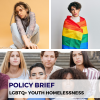

 Shared by Sandra Ware
on Jun 8, 2023
Shared by Sandra Ware
on Jun 8, 2023

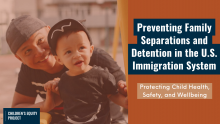
 Shared by Sandra Ware
on Mar 30, 2023
Shared by Sandra Ware
on Mar 30, 2023

 Shared by Karina George
on Jun 29, 2022
Shared by Karina George
on Jun 29, 2022

 Shared by Linda Lu
on Dec 4, 2019
Shared by Linda Lu
on Dec 4, 2019

 Shared by Housing Is
on Jun 13, 2019
Shared by Housing Is
on Jun 13, 2019
 Shared by Housing Is
on Jun 7, 2019
Shared by Housing Is
on Jun 7, 2019
 Shared by Housing Is
on Jun 7, 2019
Shared by Housing Is
on Jun 7, 2019
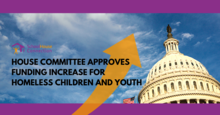
 Shared by Housing Is
on May 15, 2019
Shared by Housing Is
on May 15, 2019
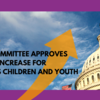

 Shared by Housing Is
on May 6, 2019
Shared by Housing Is
on May 6, 2019
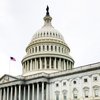
 Shared by Housing Is
on May 2, 2019
Shared by Housing Is
on May 2, 2019
 Shared by Housing Is
on May 1, 2019
Shared by Housing Is
on May 1, 2019
 Shared by Housing Is
on May 1, 2019
Shared by Housing Is
on May 1, 2019
 Shared by Housing Is
on Apr 8, 2019
Shared by Housing Is
on Apr 8, 2019
 Shared by Housing Is
on Apr 4, 2019
Shared by Housing Is
on Apr 4, 2019
 Shared by Housing Is
on Feb 4, 2019
Shared by Housing Is
on Feb 4, 2019
 Shared by Housing Is
on Jan 30, 2019
Shared by Housing Is
on Jan 30, 2019